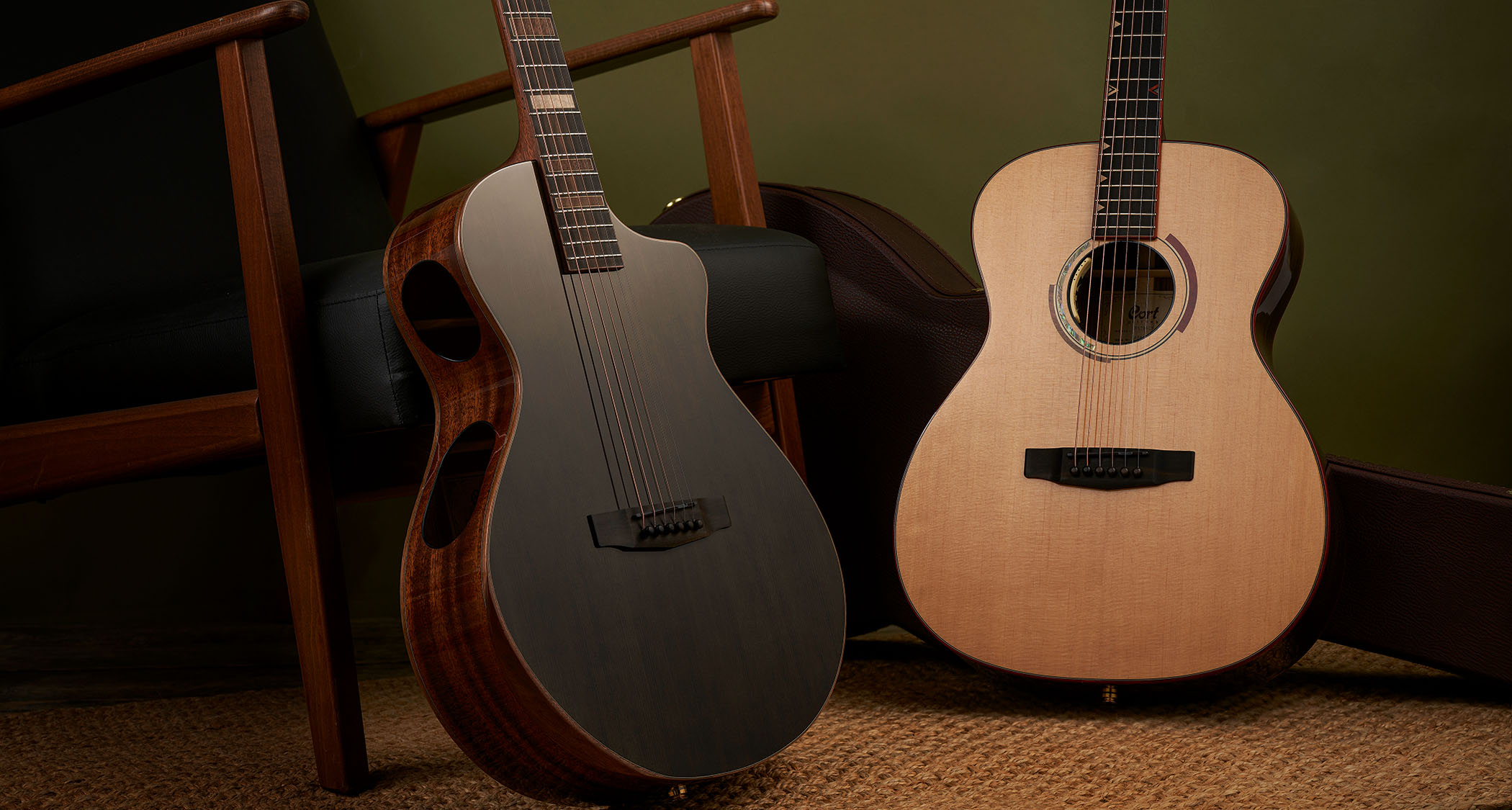Guitar World Verdict
Each of these very different acoustics has considerable merit – both in terms of design, build quality and general performance. Of the two, the Delta Black is more daring and we would award it favourite status here.
Pros
- +
Abstract Delta has a great build.
- +
It's a good value acoustic with tons of tone.
- +
Instant talking point with Modern Black's original design.
- +
Very good sound and playability.
- +
Player-friendly features.
Cons
- -
Abstract Delta requires open-mindedness about OM tone.
- -
Modern Black's sound ports might take some getting used to. Its fiddly controls might be a deal‑breaker for some.
You can trust Guitar World
Cort guitars are frequent flyers here, either in the guise of their excellent electric range or, as here, the acoustic wing of the company.
Parent business Cortek is based in Indonesia and is, according to its website, responsible for releasing more than a million guitars into the wild each year, which is quite an achievement any way you look at it.
Generally speaking, we’ve been mightily impressed with the models we have reviewed in the past, not only for their high standards where build quality is concerned but also for bang-for-your-buck value for money.
As we’ve said, the acoustic side of Cort’s business hails from a state-of-the-art facility in China and that’s precisely the birthplace of the two highly contrasting acoustics we’re looking at here. The thing that binds them together, if you were curious enough to ask, is that they both come under the auspices of Cort’s Masterpiece banner, reserved for the finest woods and highest grade of workmanship.
But the prices here hint more at mid-range instruments: has Cort managed to square the circle and deliver custom-shop quality at an off-the-peg price point? Time to start opening cases…
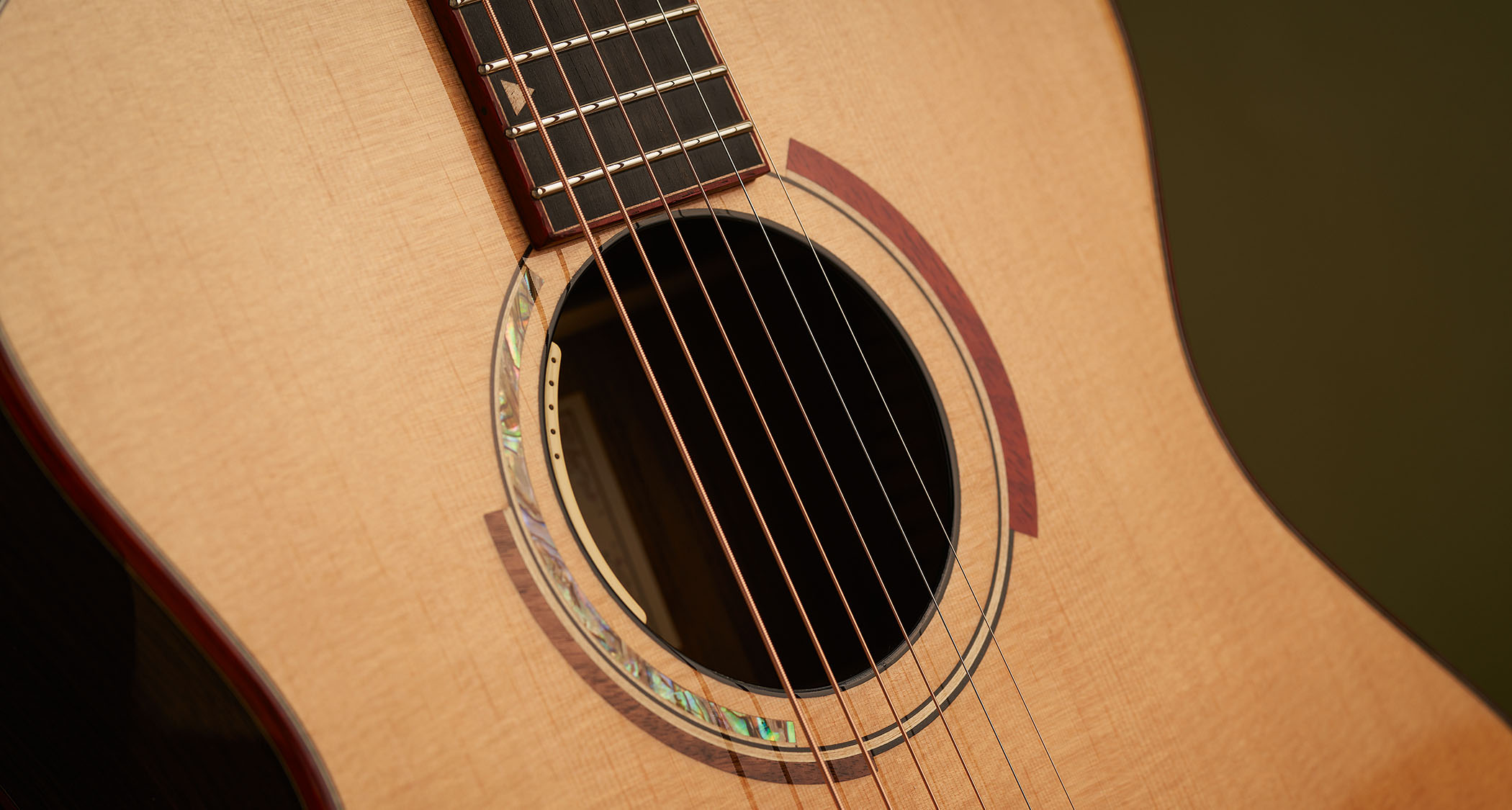
As you can see from the accompanying photographs, this pair couldn’t be more different if they tried. On the one hand we have the very traditional-looking Abstract Delta, which checks in as an OM – albeit with a deeper body than is standard for that particular designation – and then there’s the Modern Black, festooned with contemporary features such as armrest bevels and side ports.
Of the Abstract Delta, Cort tells us that it is “inspired by the Abstract Limited Edition that was introduced in 2018… [and] was developed in response to the growing demand for a follow-up model”.
All the latest guitar news, interviews, lessons, reviews, deals and more, direct to your inbox!
Furthermore, Cort adds that “new design elements were developed using combinations of triangular shapes that form geometrical designs on the headstock and fretboard position markers”. We have to say that the aforementioned decorations look very Art Nouveau to us and give the Abstract Delta a character of its own before we even pluck it from its case.
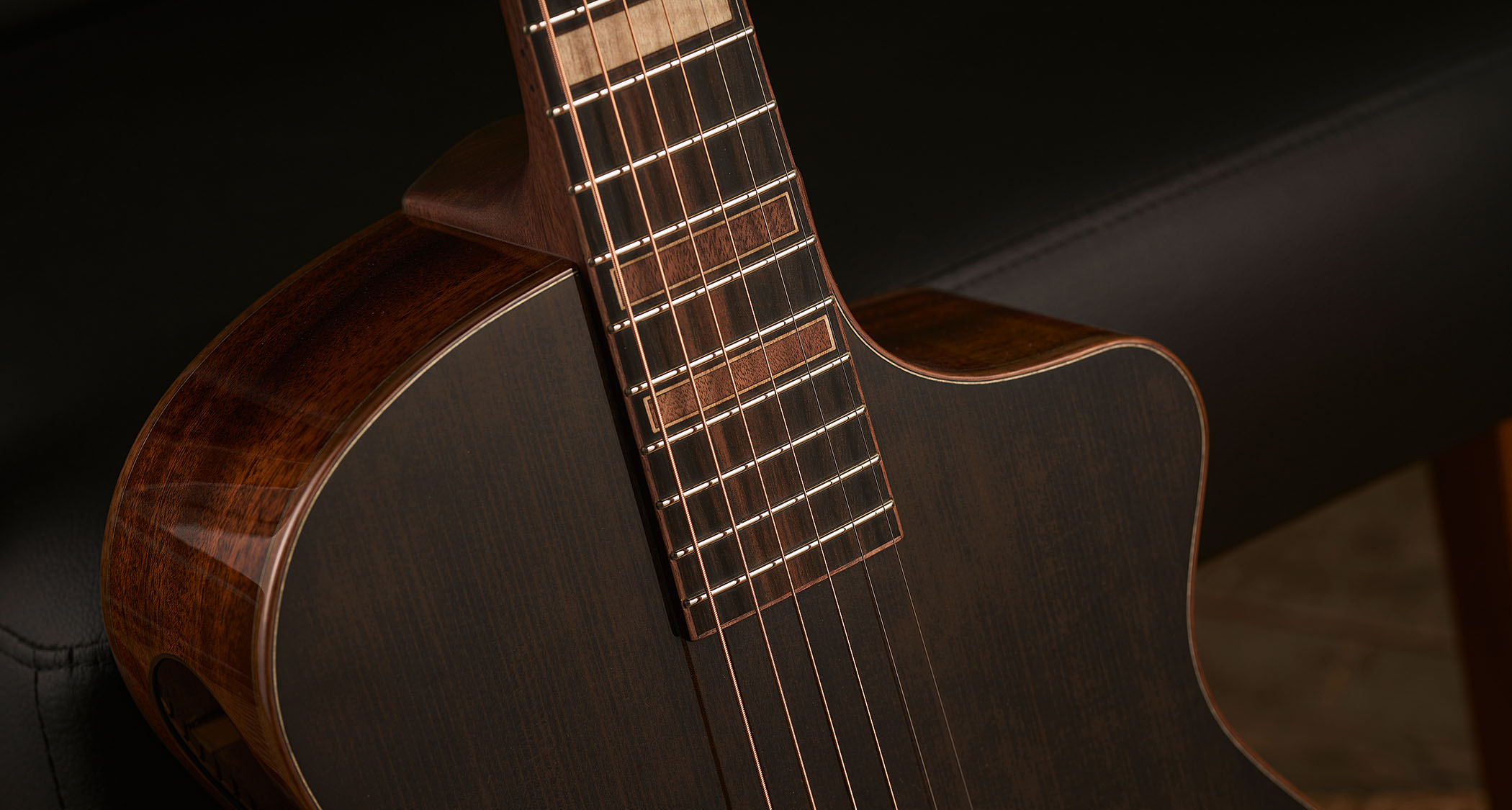
While we’re dealing with first impressions, the Modern Black is exactly what it says it is: modern and black. The lack of a traditional soundhole and that cutaway both give off Ovation-like vibes. And, as for the side ports, they’re huge! We’ll see what effect that has when we have our first probing strum. But first, let’s take each instrument individually and look at its sum of parts.
We may as well begin with the older design and the Abstract Delta ticks plenty of the OM boxes during its leap to freedom from the case. But let’s deal with that ‘deeper OM body’ spec that Cort tells us about.
A standard OM body tapers from around 104.8mm down to 82.5mm. Here, the Guitarist rule tells us that we’re dealing with a slight increase to the tune of 107mm down to 92mm. Not too much in it, then – although, now we know, it does look a mite meatier in the body department.
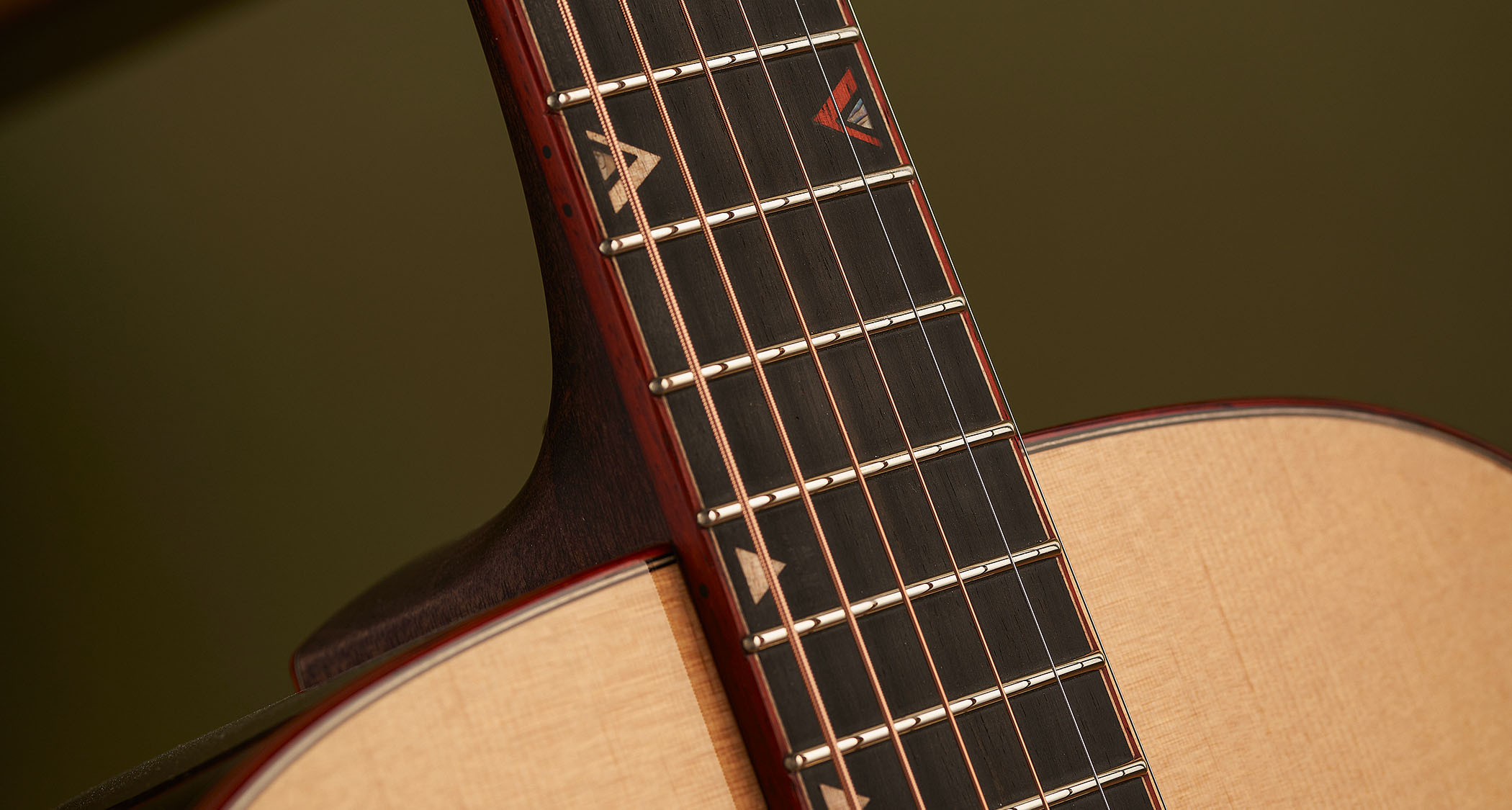
The top is master-grade Sitka spruce and what a fine-looking piece of timber it is, too – lots of that ripple effect within the grain pattern as the light catches it. As for the decor on the top, the offset rosette may not be to everyone’s taste, but it does sit nicely with the arty inlays to both headstock and fingerboard.
Back and sides are triple-A grade pau ferro (aka Santos or Bolivian rosewood). It’s a body wood that has received some ill-deserved flak in the past – Fender using it as a substitute for Indian rosewood when CITES regulations were at their tightest certainly didn’t help, for instance.
Not a fully paid-up member of the rosewood species, pau ferro has generally been seen as a poor man’s tone wood, and yet the Tonewood Data Source website states that “this wood is among the favourites for building an exceptional quality guitar”.
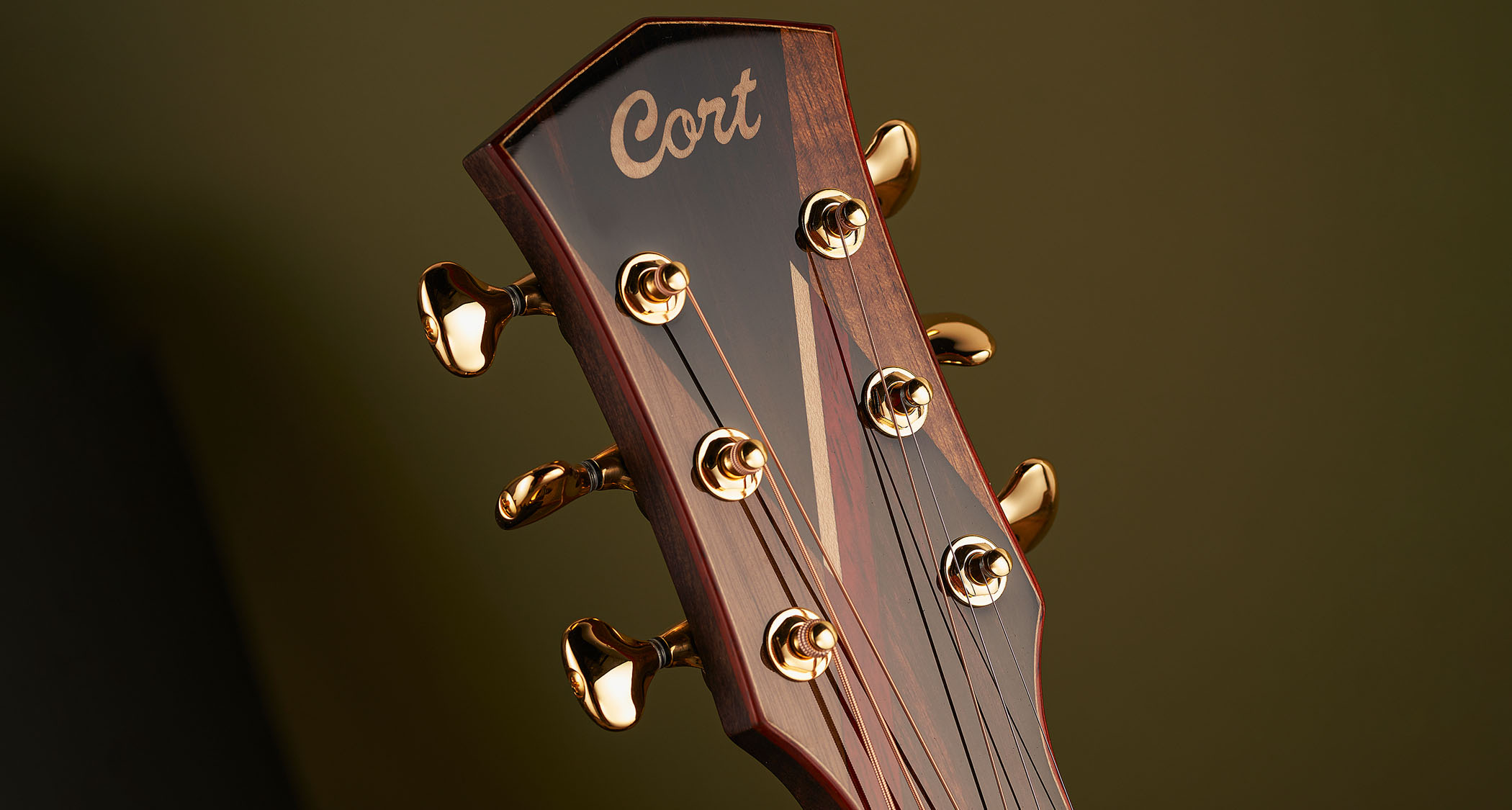
It certainly looks the part on the Abstract Delta, with much of the appearance of fine Indian rosewood but with more of a reddish hue, as opposed to the more familiar chocolate brown of the Indian.
In any case, the body is bound in red padauk, which sets it off nicely. Another nice touch is that the body edges have been rolled, as has the fretboard, to remove any discomfort while playing, so everything hereabouts feels smooth.
The neck is one-piece mahogany with a satin feel, as opposed to the body’s high gloss, and the separate low-profile heel looks classy, too. Tuners are gold-coloured Gotoh 510s, which make that Art Nouveau inspired headstock really sing, and the fixtures and fittings are completed by nut and saddles by Tusq and an LR Baggs Anthem for live work.
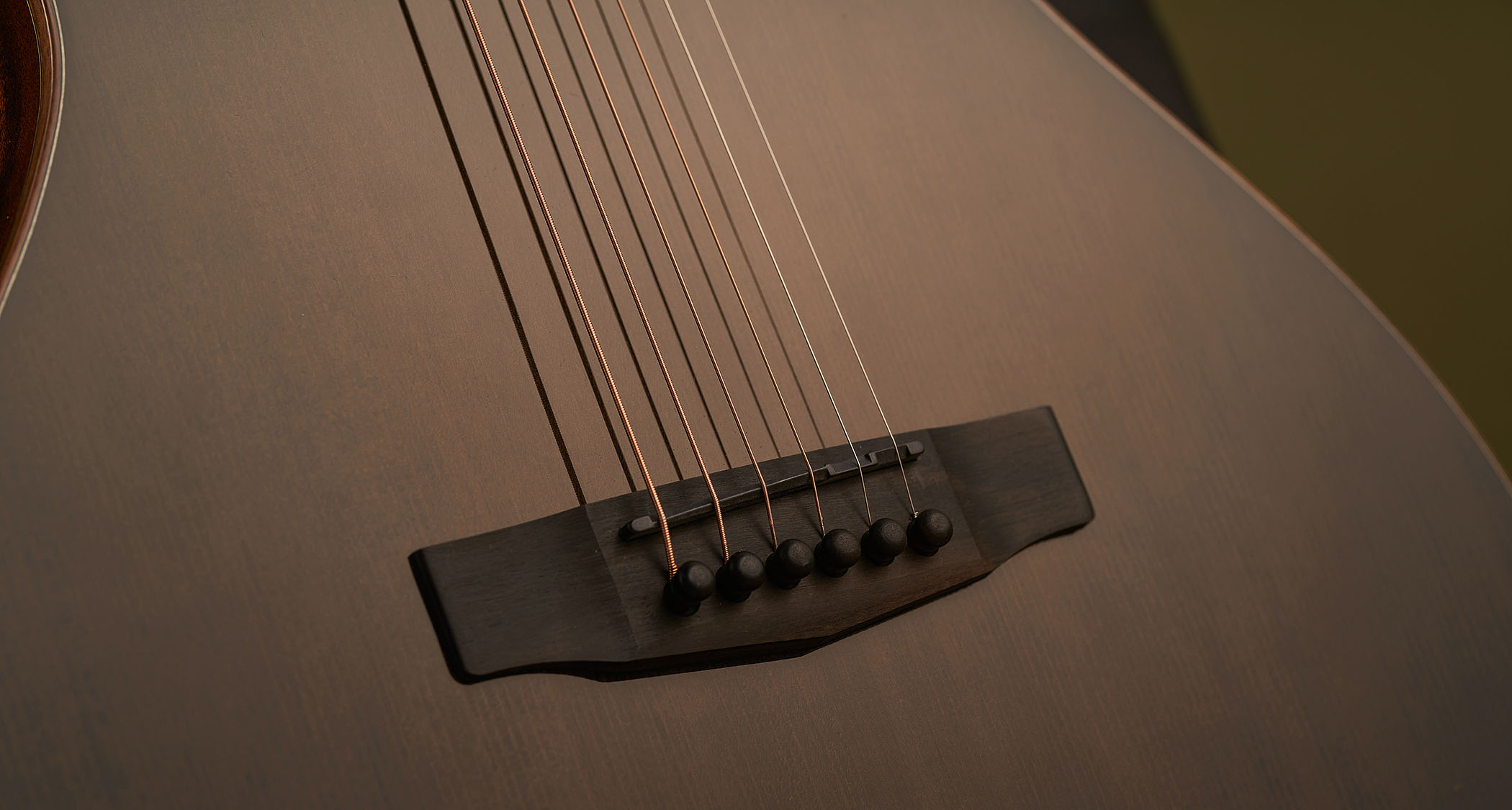
Switching over to Cort’s Modern Black now, a glance at the accompanying spec sheet tells us that it was “inspired by the chic and sleek style of the modern jazz era, [and] boasts unique and bold design with a blend of elegance and composure”.
Based on the Grand Concert body shape, that sleek Venetian cutaway, none-more-black finish and the absence of a top-mounted soundhole tell us that Cort has picked up the traditional ball and is running with it, in terms of design at least.
Those inlays in the fingerboard and the dark walnut binding all bring something to the body decor party, too. And we haven’t even begun to talk about those oversized side‑mounted soundports…
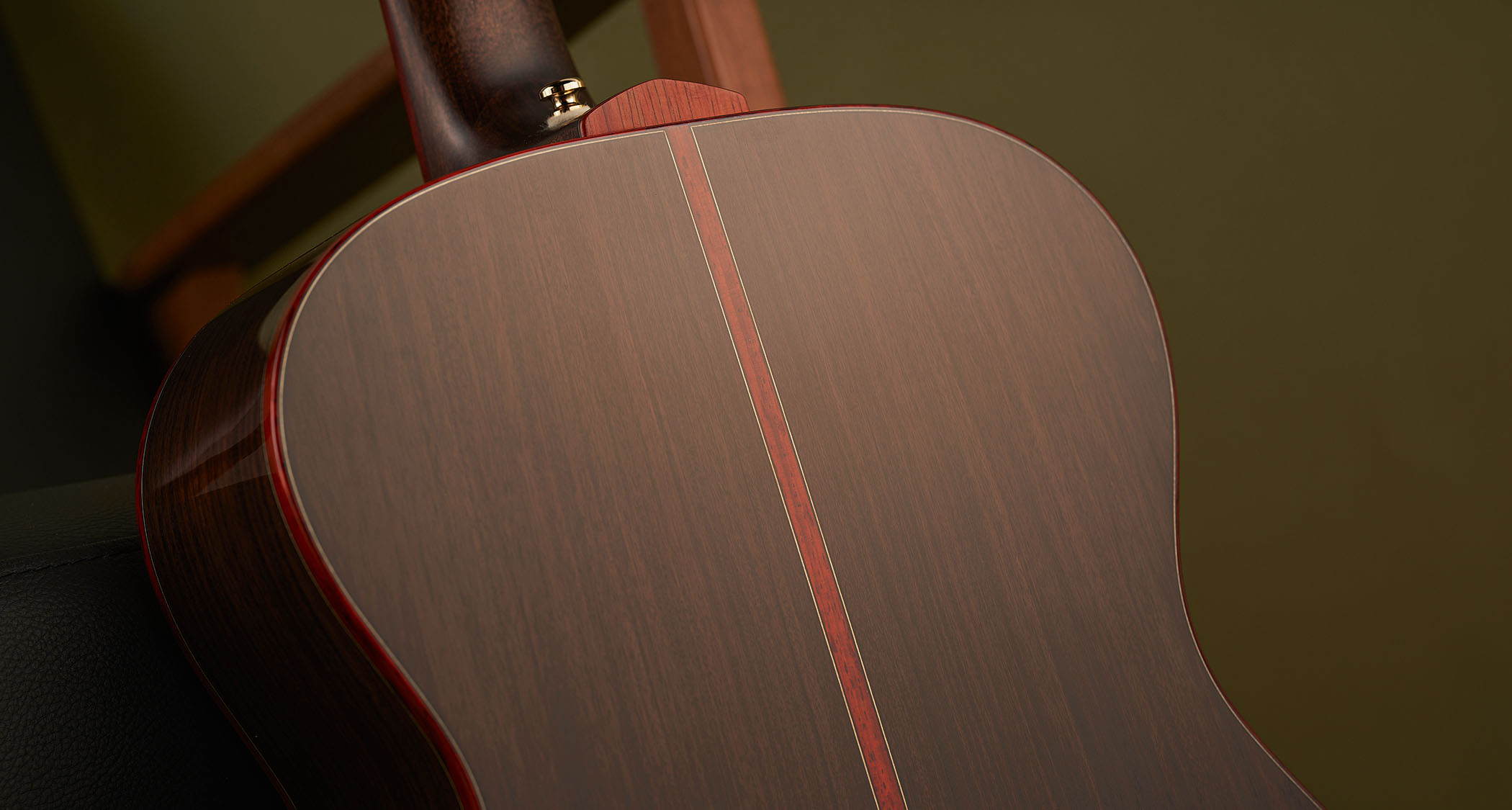
All but hidden under the sleek black finish (it’s actually semi-transparent in bright light) is European spruce, partnered with mahogany for the back and sides. On the player’s side of the upper and lower bouts we find the sound ports, which are aimed to angle the sound towards you – it’s almost like having a built-in monitor.
It’s an interesting and original touch, and although side ports are not a new thing to the acoustic guitar world, we’ve certainly not seen any quite this big. The larger of the two measures in at 108mm by 67mm and the smaller 80mm by 65mm, and so that’s quite a chunk out of the side of the guitar.
It strikes us that, being your only soundhole, it might make micing up a bit of a problem in a studio environment, and the open view to the inner workings of the instrument – braces, kerfing and so on – might take a while to get used to from a player’s point of view. But we’ll reserve judgement until we hear the Modern Black in action.
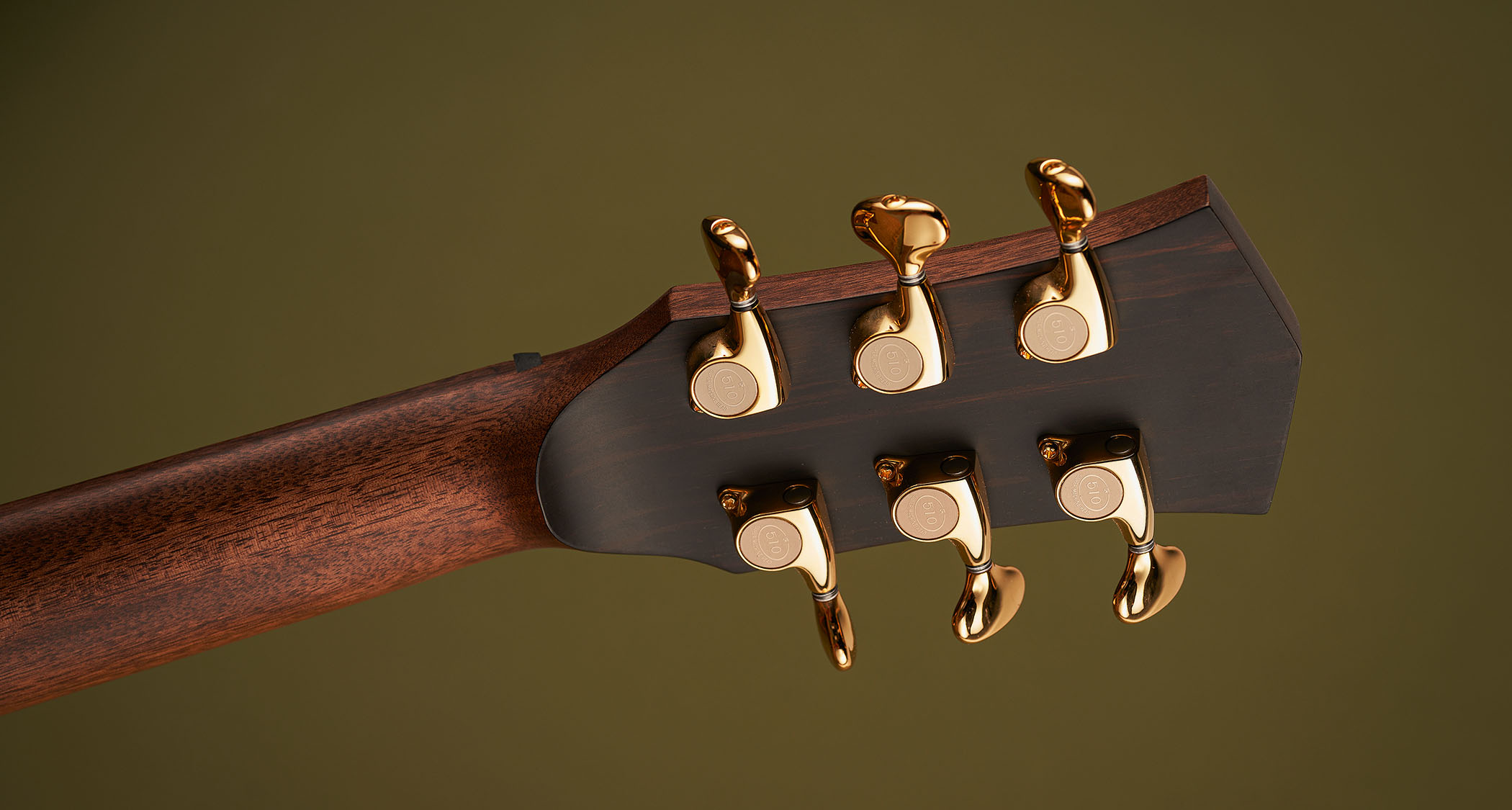
Apart from the shock of the new features to the body, the rest of the build follows that of the Abstract Delta: mahogany neck, ebony ’board, Gotoh tuners and Tusq for the string saddle and nut.
But an individual touch here is that the Modern Black’s neck has an asymmetrical profile, meaning that the camber of the bass side changes as you travel up the fretboard. This is something we’ve seen on electric guitars in the past – Music Man was pioneering it way back in the 1990s – but it’s a rare feature on an acoustic.
Those snazzy inlays really do have something to say from an artistic point of view and we can see what Cort means when it says that the jazz age was an inspiration here.
Feel & Sounds
Returning to the Abstract Delta, we don’t know if it’s purely psychological, but it seems that those extra few millimetres of body depth have transformed this OM into something altogether more bulky in the playing position. It feels like more of a significant lap-full from the word go.
That’s not a bad thing by any means; it merely pushes the OM status more towards the feel of a dreadnought. The neck is comfortable and those rolled fretboard edges make both casual chord strumming and more athletic single-note adventuring a comfortable experience.
The sound has a lot of depth, too. That pau ferro is really working overtime to produce strident basses and powerful, sweet trebles.
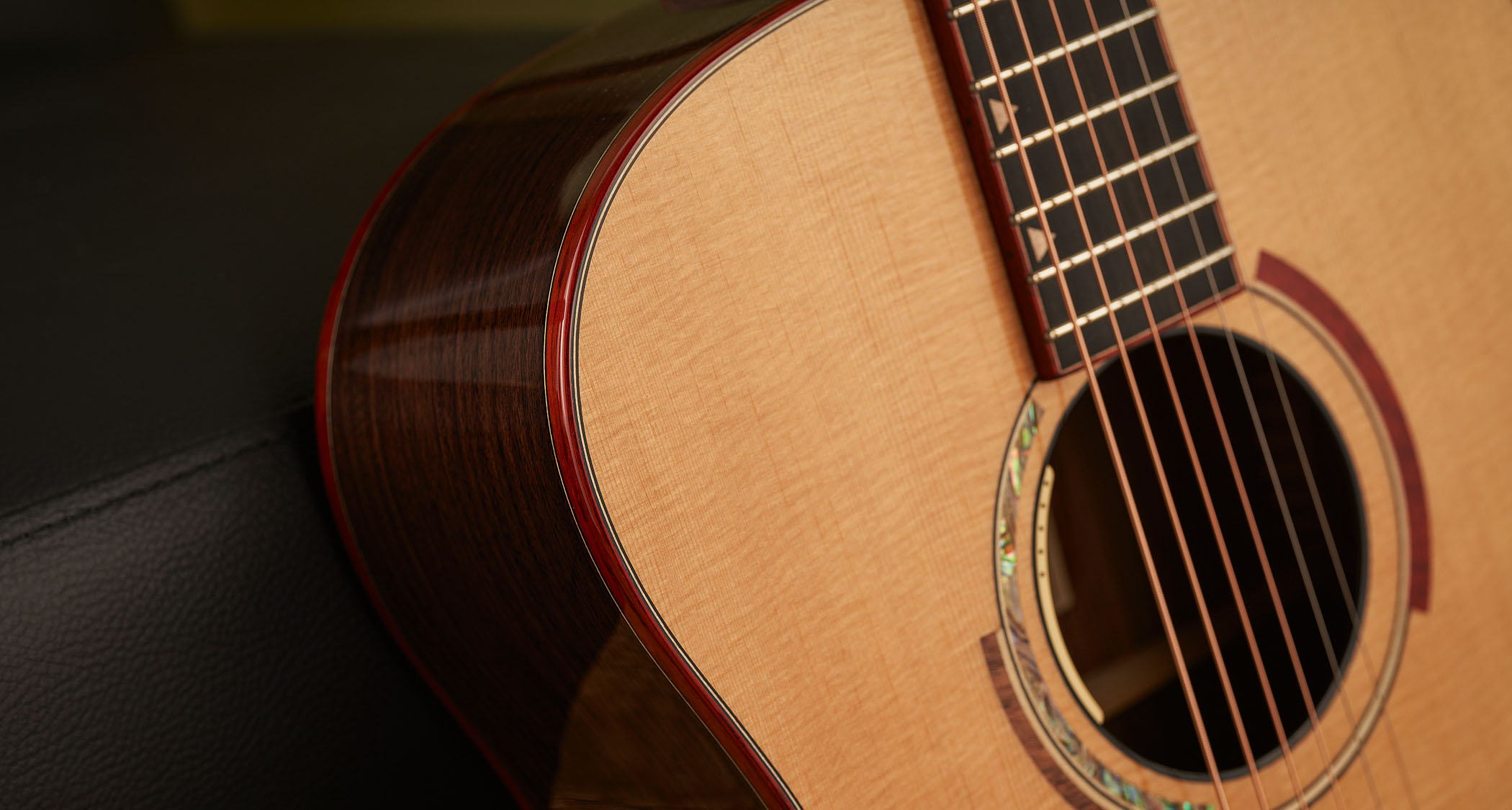
The Modern Black is altogether more refined – surprisingly so, seeing as the sound is literally being projected straight towards us. But there’s something altogether more slick going on here. That asymmetrical neck really does change the playing experience for the better.
The overall sound is flatter, in a good way, and somehow more harmonious than on its more traditionally designed partner. It seems as though the daring side-port idea really is paying off.
Through an amp, both seem ideally partnered with their respective pickup systems, the Abstract Delta’s LR Baggs Anthem reproducing the guitar’s strident tones faithfully via our Boss Katana Artist Gen 3 set to Acoustic mode.
After a little orientation we found that the Fishman did an excellent job in bringing the instrument to electric life
The Modern Black suffers one potential drawback, however, in that the controls for the preamp, mounted inside the smaller of the two sound ports, are a bit fiddly to reach.
Doubtless you could settle in with this after time and we really don’t see that Cort had much of an alternative in terms of position. But it’s worth noting, all the same. After a little orientation, though, we found that the Fishman did an excellent job in bringing the instrument to electric life.
Verdict
Each of these very different acoustics has considerable merit – both in terms of design, build quality and general performance. Of the two, the Delta Black is more daring and we would award it favourite status here.
But hang on, look at the price tag: good looks, more than capable pickup system and a hard case for under $1.5k/£1k? That has to be an automatic add to your acoustic shopping list if you’re in the running for a dare-to-be-different acoustic.
The Abstract Delta holds its own in a more traditional way with bags of good, toneful power under the hood. Cort really is to be congratulated once again for delivering on its Masterpiece promise.
Specs
Cort Abstract Delta
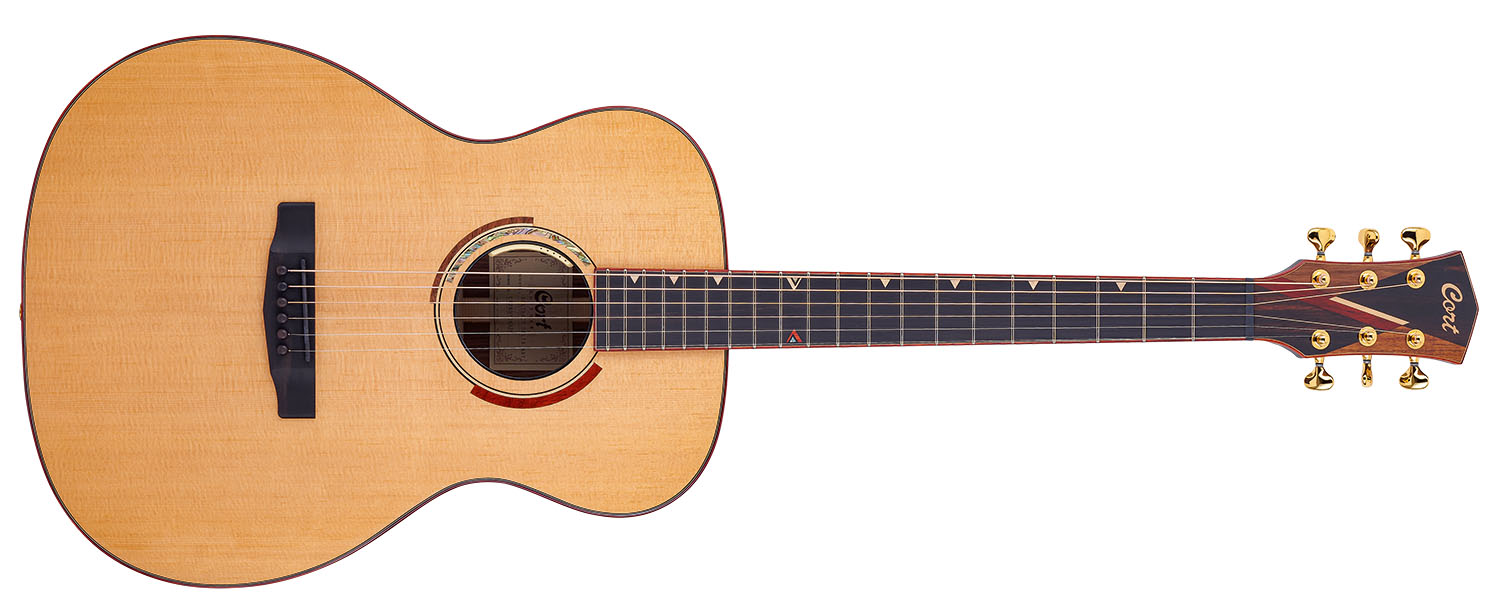
- PRICE: $1,799 / £1,499 (inc case)
- ORIGIN: China
- TYPE: OM
- TOP: Master grade Sitka spruce
- BACK/SIDES: AAA grade pau ferro
- MAX RIM DEPTH: 107mm
- MAX BODY DEPTH: 385mm
- NECK: Mahogany
- SCALE LENGTH: 648mm (25.5”)
- TUNERS: Gotoh 510Z
- NUT/WIDTH: Graph Tech Tusq/44.5mm
- FINGERBOARD: Ebony
- FRETS: 20
- BRIDGE/SPACING: Ebony/57mm
- ELECTRICS: LR Baggs Anthem
- WEIGHT (kg/lb): 2.12/4.68
- LEFT-HANDERS: Yes
- FINISH: Natural gloss
Cort Modern Black
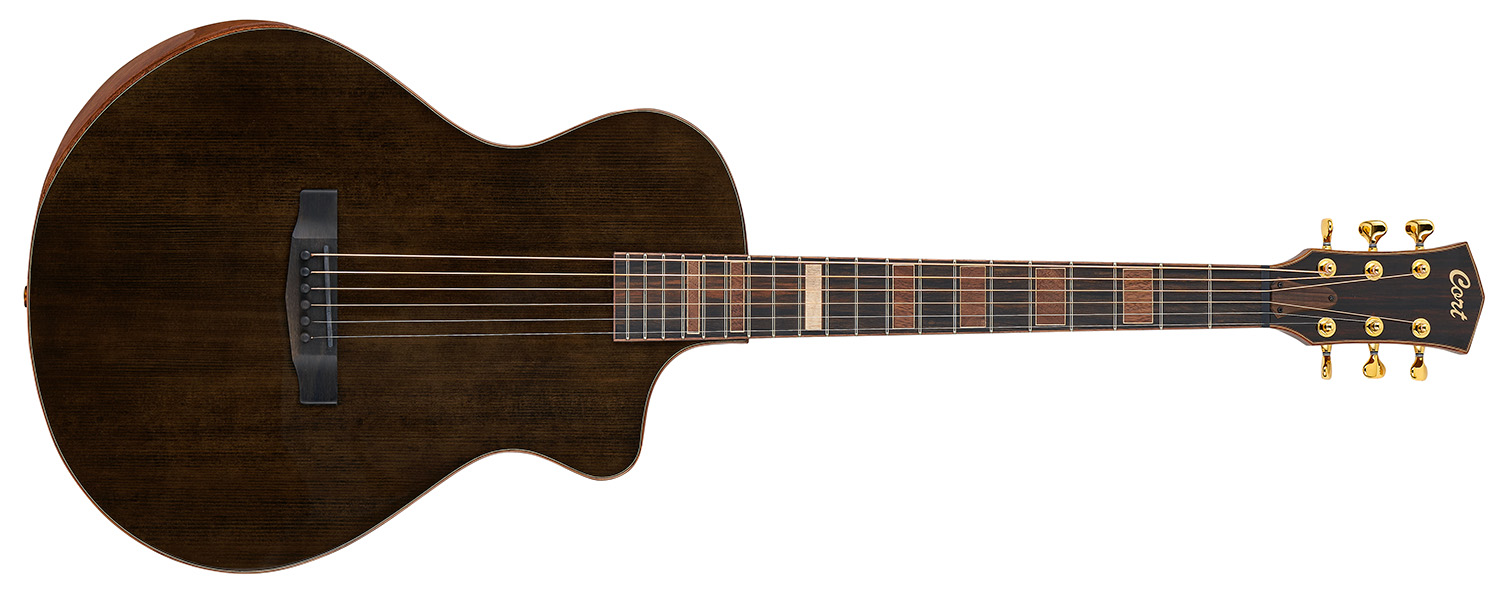
- PRICE: $1,499 / £999 (inc case)
- ORIGIN: China
- TYPE: Modern Concert
- TOP: Master grade European spruce
- BACK/SIDES: Mahogany
- MAX RIM DEPTH: 45mm
- MAX BODY DEPTH: 386mm
- NECK: Mahogany
- SCALE LENGTH: 648mm (25.5”)
- TUNERS: Gotoh SGLZ
- NUT/WIDTH: Graph Tech Tusq/44.5mm
- FINGERBOARD: Ebony
- FRETS: 20
- BRIDGE/SPACING: Ebony/57mm
- ELECTRICS: Fishman Matrix Infinity VT
- WEIGHT (kg/lb): 1.69/3.74
- LEFT-HANDERS: Yes
- FINISH: Trans Black gloss
- CONTACT: Cort Guitars
With over 30 years’ experience writing for guitar magazines, including at one time occupying the role of editor for Guitarist and Guitar Techniques, David is also the best-selling author of a number of guitar books for Sanctuary Publishing, Music Sales, Mel Bay and Hal Leonard. As a player he has performed with blues sax legend Dick Heckstall-Smith, played rock ’n’ roll in Marty Wilde’s band, duetted with Martin Taylor and taken part in charity gigs backing Gary Moore, Bernie Marsden and Robbie McIntosh, among others. An avid composer of acoustic guitar instrumentals, he has released two acclaimed albums, Nocturnal and Arboretum.
